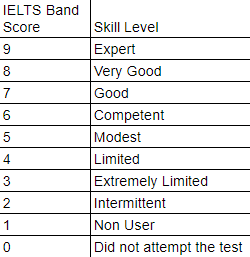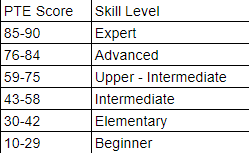Choosing the Best English Language Proficiency Exam: IELTS vs PTE
Are you looking to prove your English language proficiency? With so many options available, it can be challenging to choose the best exam for your needs. Two of the most popular English language proficiency exams are IELTS (International English Language Testing System) and PTE (Pearson Test of English). In this article, we will compare these two exams, examining their similarities and differences to help you make an informed decision.
IELTS, jointly owned by the British Council, IDP: IELTS and Cambridge University Press and Assessment, is accepted by universities, employers, and immigration authorities worldwide. On the other hand, PTE, developed by Pearson, is a computer-based exam that assesses your reading, writing, listening, and speaking skills.
Both exams have their unique features, including test formats, scoring methods, and test locations. Understanding these differences is essential to choose the exam that suits your requirements and goals.
Whether your aim is to study abroad, work in an English-speaking country, or immigrate, selecting the right English language proficiency exam is crucial. So let’s dive into the details and compare IELTS and PTE to find the best fit for you.
IELTS: International English Language Testing System
IELTS, or the International English Language Testing System, is one of the most widely recognized and accepted English language proficiency exams globally. Developed by the British Council, IDP: IELTS, and Cambridge University Press and Assessment,, IELTS has become a standard requirement for those seeking to study, work, or immigrate to countries where English is the primary language.
The IELTS exam is designed to assess an individual’s ability to communicate effectively in English across four key areas: listening, reading, writing, and speaking. The exam is available in two formats: Academic and General Training. The Academic version is typically required for those seeking admission to universities or colleges, while the General Training version is more suitable for those looking to to train or study at below degree level, immigrate or work in an English-speaking country.
Both the Academic and General Training versions of the IELTS exam follow the same overall structure, with each section testing a specific language skill. The listening and speaking sections are the same for both versions, while the reading and writing sections differ in their content and focus. The IELTS exam is administered by trained and certified examiners, ensuring a fair and consistent assessment of each candidate’s abilities.
PTE: Pearson Test of English
The Pearson Test of English (PTE) is another widely recognized English language proficiency exam, developed and administered by the global education company, Pearson. Unlike IELTS, which is a paper-based exam, the PTE is a computer-based assessment that evaluates an individual’s English language skills across the same four key areas: listening, reading, writing, and speaking.
The PTE exam is designed to provide a more efficient and streamlined testing experience, with the entire assessment being completed in a single session, typically lasting approximately 2 hours. The exam is available in two formats: Academic and General, similar to IELTS, with the Academic version being the more commonly required option for those seeking to study or work in an English-speaking environment.
Like IELTS, the PTE exam assesses a candidate’s ability to comprehend and communicate effectively in English. However, the test format and structure differ from IELTS, with the PTE utilizing a range of question types in each section.
Format and structure of IELTS
The IELTS exam consists of four sections, each testing a specific language skill:
- Listening: This section evaluates the candidate’s ability to understand spoken English in a variety of contexts, including conversations, short answer questions, sentence completion, monologues, etc. The listening section lasts for approximately 30 minutes and includes 40 questions.
- Reading: The reading section assesses the candidate’s ability to comprehend written English. The content of the Reading test is different for IELTS Academic and IELTS General Training tests. The Academic version includes three long texts, while the General Training version includes shorter passages. The reading section lasts for 60 minutes and includes 40 questions for both.
- Writing: This section evaluates the candidate’s ability to communicate effectively in written English. The Academic version includes two tasks: a 150-word essay and a 250-word essay. The General Training version includes a letter-writing task and an essay. The writing section lasts for 60 minutes.
- Speaking: The speaking section assesses the candidate’s ability to communicate orally in English. The content of the IELTS Speaking test is the same for both the IELTS Academic and IELTS General Training tests.This section is conducted in a face-to-face interview with an IELTS examiner and includes three parts: an introduction and interview, a longer turn, and a discussion. The speaking section lasts for approximately 11-14 minutes.
The IELTS exam is designed to be a comprehensive assessment of an individual’s English language proficiency, with each section contributing to the overall score. The total time taken to complete the test is approximately 2 hours and 45 minutes.
Format and structure of PTE
The Pearson Test of English (PTE) exam is also divided into four sections, each evaluating a specific language skill:
- Listening: The listening section of the PTE exam includes a variety of question types, such as multiple-choice, fill-in-the-blanks, highlighting incorrect words, writing from dictation, summarization tasks, etc. to assess the candidate’s ability to comprehend spoken English. This section typically lasts for approximately 30-43 minutes.
- Reading: The reading section of the PTE exam includes a range of question types, including multiple-choice, fill-in-the-blanks, and reorder paragraphs, to evaluate the candidate’s ability to understand written English. This section typically lasts for 29-30 minutes.
- Speaking and Writing: The writing section of the PTE exam assesses the candidate’s ability to communicate effectively in written and oral communication in English. The writing includes tasks such as summarizing a written text, writing an essay, and completing a short written response.
The speaking section includes a variety of tasks, such as reading aloud, describing an image, and responding to a short question or statement. Both sections typically last for 54-67 minutes.
Unlike the IELTS exam, which is administered in a paper-based format, the PTE exam is entirely computer-based. This allows for a more efficient and streamlined testing experience, with the entire assessment being completed in a single session.
Scoring system of IELTS
The IELTS exam uses a scoring system that ranges from 1 to 9, with 1 being the lowest and 9 being the highest. Each section of the exam (listening, reading, writing, and speaking) is scored individually, and the overall band score is calculated as the average of the four section scores.
The IELTS scoring system is as follows:

To achieve a specific overall band score, candidates must meet the minimum requirements for each section. For example, to achieve an overall band score of 7, a candidate might need to score a 7 in listening, 7 in reading, 6 in writing, and 7 in speaking.
The IELTS scoring system is globally recognized and widely accepted by educational institutions, employers, and immigration authorities around the world, making it a reliable and consistent measure of an individual’s English language proficiency.
Scoring system of PTE
The Pearson Test of English (PTE) exam uses a different scoring system compared to IELTS. The PTE score ranges from 10 to 90, with 10 being the lowest and 90 being the highest. The overall PTE score is calculated based on the performance in each of the four sections (listening, reading, writing, and speaking).
The PTE scoring system is as follows:

Unlike IELTS, where the overall band score is the average of the four section scores, the PTE overall score is calculated using an automated scoring technology that takes into account the performance in each section and the overall test-taking experience.
The PTE scoring system is designed to provide a more detailed and comprehensive assessment of an individual’s English language proficiency, with the higher scores indicating a stronger command of the language.
Differences between IELTS and PTE
While IELTS and PTE are both widely recognized English language proficiency exams, there are several key differences between the two:
- Test format: IELTS is a mostly paper-based exam, while PTE is a computer-based assessment.
- Duration: The IELTS exam typically takes around 2 hours and 45 minutes to complete, while the PTE exam can be completed in a single session lasting approximately 2 hours.
- Scoring system: IELTS uses a 1-9 band scoring system, while PTE uses a 10-90 scale.
- Question types: IELTS primarily uses traditional question formats, such as multiple-choice and short-answer questions, while PTE incorporates a wider range of question types, including summarization, fill-in-the-blanks, and multiple-choice.
- Locations: IELTS is available at test centers in over 140 countries, while PTE has a more limited global reach, with test centers in around 117 countries.
- Acceptability: IELTS is more widely accepted by educational institutions, employers, and immigration authorities worldwide, while PTE is gaining increasing recognition, particularly in certain regions and industries.
These differences can have a significant impact on the test-taking experience and the overall suitability of the exam for a particular candidate’s needs and goals.
Which exam is right for you?
When deciding between IELTS and PTE, it’s important to consider your specific goals and requirements. Here are some factors to keep in mind:
- Test format: If you prefer a computer-based assessment, PTE may be the better choice. If you’re more comfortable with a traditional paper-based and face-to-face exam, IELTS may be a better fit.
- Test locations: If you need to take the exam in a specific country or region, check the availability of test centers for both IELTS and PTE to ensure that your desired location is covered.
- Exam acceptance: Research the specific requirements of the institutions, employers, or immigration authorities you’re targeting to determine which exam they prefer or accept.
- Scoring system: Consider which scoring system aligns better with your goals and expectations. The 9-band IELTS system may be more familiar to some, while the 10-90 PTE scale provides a more detailed assessment.
- Exam preparation: Evaluate the available resources and support for preparing for each exam, as this can significantly impact your performance and confidence on test day.
Ultimately, the choice between IELTS and PTE will depend on your individual circumstances, goals, and preferences. It’s recommended to thoroughly research both exams, where you can consult with our education consultancy and also take a practice test for each to determine which one best suits your needs.
Conclusion
Choosing the right English language proficiency exam by understanding the key differences between IELTS and PTE can help you make an informed decision. Both exams are widely recognized and respected, but they differ in their format, scoring systems, and global reach.
Whether you’re aiming to study abroad, work in an English-speaking country, or immigrate, selecting the exam that aligns with your specific goals and requirements is crucial. By carefully considering factors such as test format, exam acceptance, and scoring systems, you can ensure that you choose the best English language proficiency exam to showcase your language skills and achieve your aspirations.
Remember, the journey to demonstrating your English language proficiency is not just about passing the exam; it’s about developing the necessary skills to communicate effectively in English, which will benefit you in various aspects of your personal and professional life. With the right preparation and the right exam, you can confidently take the next step towards your goals.






